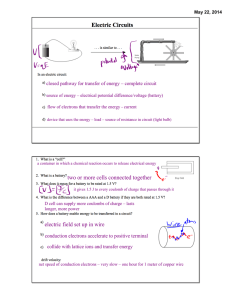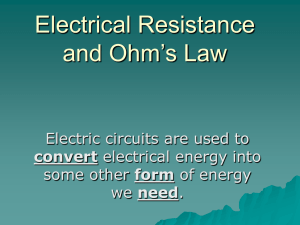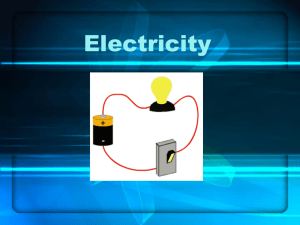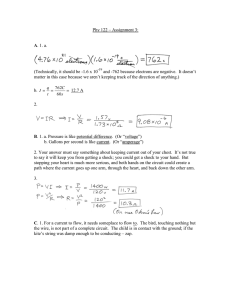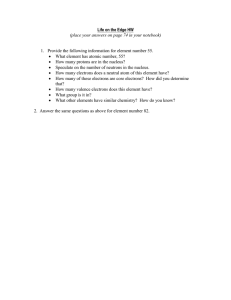ELECTRIC POTENTIAL DIFFERENCE
advertisement
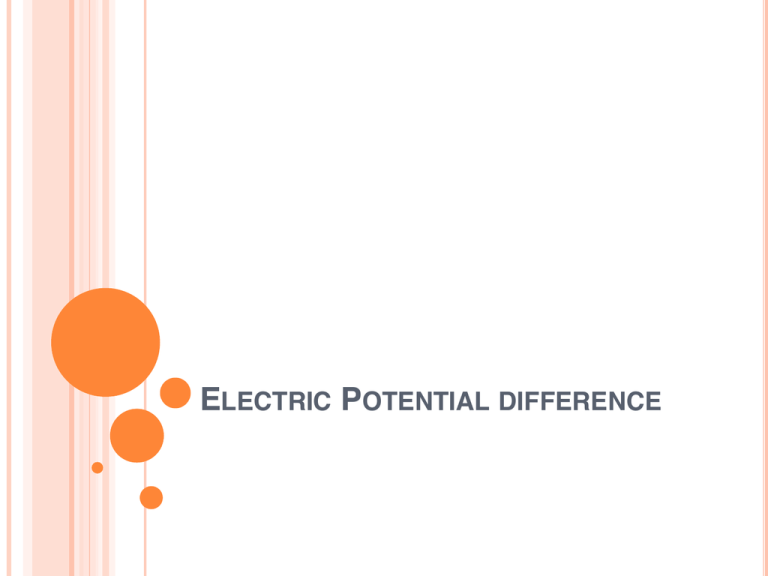
ELECTRIC POTENTIAL DIFFERENCE ELECTRIC POTENTIAL ENERGY Electric Potential Energy results from the separation of electrons which are negatively charged so they repel each other to overcome this force and push the electrons closer together, energy must be transferred to the electrons increasing their electric potential energy the closer electrons are pushed together, the greater the electric potential energy movement of electrons therefore requires a change in energy ELECTRIC POTENTIAL Electric Potential measurement of the electric potential energy associated with charges (electrons) the amount of energy needed to move a quantity of electrons closer to one another measures both the electrical energy and quantity of electrons unit is the joule per coulomb ( J/C) J is the measurement of electric potential energy C is a measurement of the number of electrons or amount of charge 1 J/C = 1 volt (V) ELECTRIC POTENTIAL DIFFERENCE Electric Potential Difference measures difference in electric potential between 2 different points in a circuit this difference exists because energy is transformed in an electric circuit is the difference in electric potential energy associated with a coulomb of charge at 2 different points in a circuit also referred to as voltage (V) voltage gain = positive potential difference voltage drop = negative electric potential difference EQUATION E is change in electric potential energy (joules) Q is the amount of charge (electrons) (coulombs) V is the electric potential difference (joules per coulomb or volts) V E Q PG. 511 PRACTICE #1 E A 120 J Given = Q V Required Analyst steps 52C = ? = v=b¥ v= Rg÷JK 2.3 = V . 2.3 V MEASURING ELECTRIC POTENTIAL DIFFERENCE Voltmeter an instrument used to measure electric potential difference in circuits Series Circuits circuits that have only one complete path Parallel Circuits circuits that have more than one complete path Voltmeters only work accurately if they are connected in parallel in the circuit SERIES CIRCUIT Th PARALLEL CIRCUIT CLASSWORK / HOMEWORK Pg. 513 # 1 – 6 Read 11.5 pgs. 516 – 518 Read 11.6 pgs. 519 - 522
